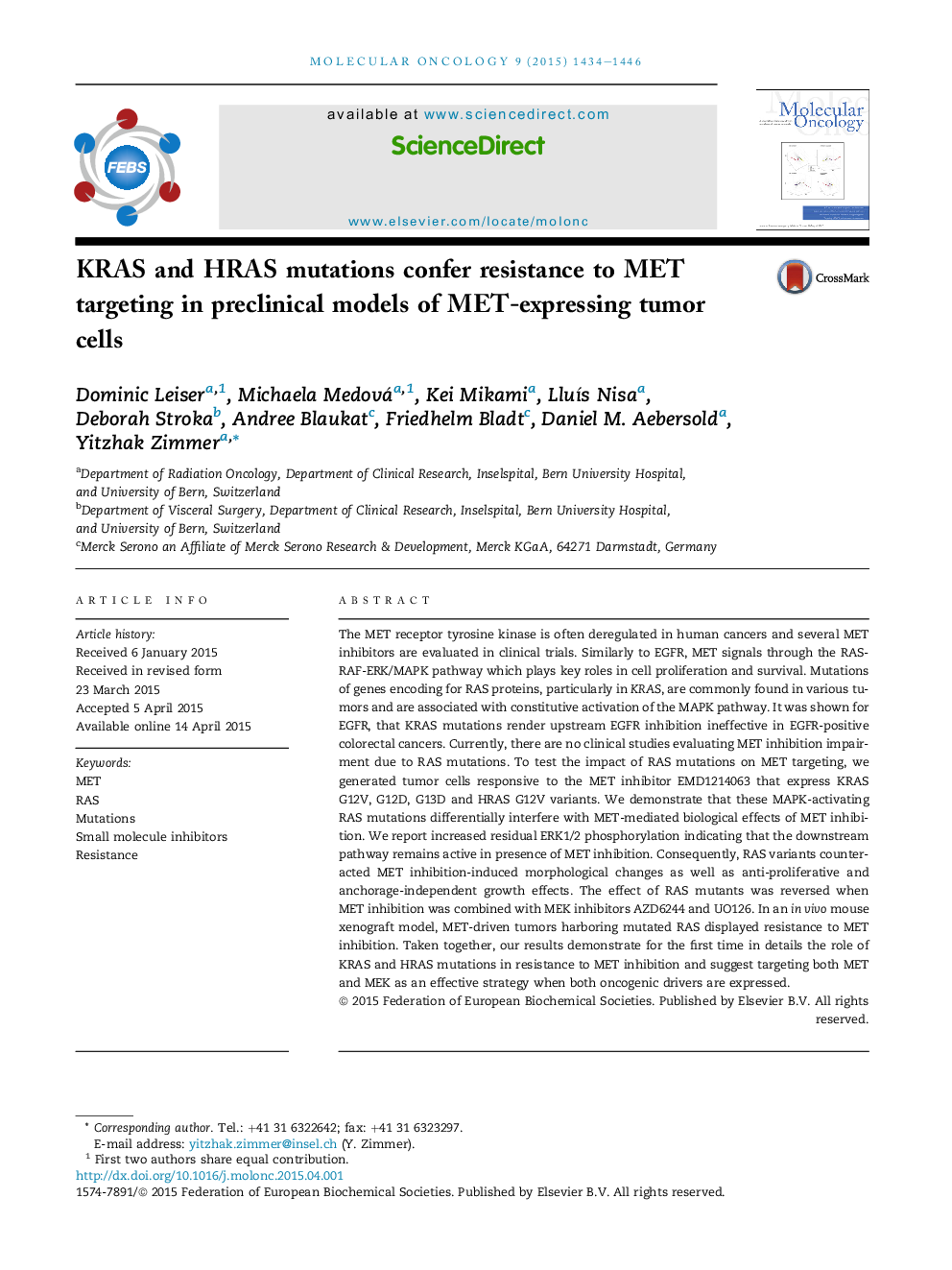| Article ID | Journal | Published Year | Pages | File Type |
|---|---|---|---|---|
| 10914662 | Molecular Oncology | 2015 | 13 Pages |
Abstract
The MET receptor tyrosine kinase is often deregulated in human cancers and several MET inhibitors are evaluated in clinical trials. Similarly to EGFR, MET signals through the RAS-RAF-ERK/MAPK pathway which plays key roles in cell proliferation and survival. Mutations of genes encoding for RAS proteins, particularly in KRAS, are commonly found in various tumors and are associated with constitutive activation of the MAPK pathway. It was shown for EGFR, that KRAS mutations render upstream EGFR inhibition ineffective in EGFR-positive colorectal cancers. Currently, there are no clinical studies evaluating MET inhibition impairment due to RAS mutations. To test the impact of RAS mutations on MET targeting, we generated tumor cells responsive to the MET inhibitor EMD1214063 that express KRAS G12V, G12D, G13D and HRAS G12V variants. We demonstrate that these MAPK-activating RAS mutations differentially interfere with MET-mediated biological effects of MET inhibition. We report increased residual ERK1/2 phosphorylation indicating that the downstream pathway remains active in presence of MET inhibition. Consequently, RAS variants counteracted MET inhibition-induced morphological changes as well as anti-proliferative and anchorage-independent growth effects. The effect of RAS mutants was reversed when MET inhibition was combined with MEK inhibitors AZD6244 and UO126. In an in vivo mouse xenograft model, MET-driven tumors harboring mutated RAS displayed resistance to MET inhibition. Taken together, our results demonstrate for the first time in details the role of KRAS and HRAS mutations in resistance to MET inhibition and suggest targeting both MET and MEK as an effective strategy when both oncogenic drivers are expressed.
Related Topics
Life Sciences
Biochemistry, Genetics and Molecular Biology
Cancer Research
Authors
Dominic Leiser, Michaela Medová, Kei Mikami, LluÃs Nisa, Deborah Stroka, Andree Blaukat, Friedhelm Bladt, Daniel M. Aebersold, Yitzhak Zimmer,
